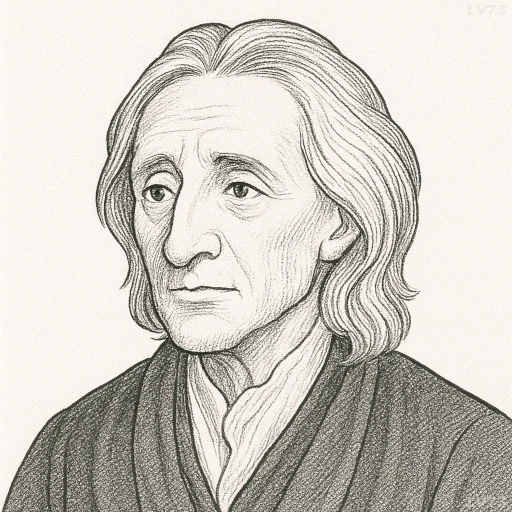“Fortitude is the guard and support of the other virtues.”

- August 29, 1632 – October 28, 1704
- Born in England (UK)
- Philosopher and political thinker
table of contents
Quote
“Fortitude is the guard and support of the other virtues.”
Explanation
In this quote, John Locke emphasizes the role of fortitude—or moral courage—as a foundational virtue that supports and protects other virtues. Fortitude, in Locke’s view, is the strength of character that enables an individual to persist in doing what is right, even in the face of difficulty, danger, or adversity. Without fortitude, other virtues like honesty, integrity, and justice would be easily compromised or abandoned when faced with challenges. Locke suggests that fortitude gives individuals the resilience and resolve needed to uphold their moral principles, even when it requires personal sacrifice or overcoming external pressures. Essentially, fortitude acts as the bedrock that ensures other virtues can be practiced consistently and effectively.
Locke’s view of fortitude aligns with his broader philosophical emphasis on personal responsibility and the role of reason in guiding moral actions. In the 17th century, when Locke was writing, society was deeply entrenched in political and religious struggles, and fortitude was seen as a necessary quality for those advocating for freedom and justice. Locke himself, during the political turmoil of his time, believed that individuals and governments alike must demonstrate fortitude to protect and promote human rights. His belief in fortitude as the guard of virtue reflects the idea that moral character is not easily maintained without inner strength and courage, particularly in challenging times.
In modern times, Locke’s perspective on fortitude remains relevant in both personal and societal contexts. For instance, in the face of adversity—whether it be personal hardship, social injustice, or professional setbacks—fortitude enables individuals to stand firm in their convictions and make ethical choices. It is also a key quality in leadership, where moral courage is necessary to make difficult decisions, uphold values, and advocate for positive change despite opposition. Locke’s insight reminds us that fortitude is essential not just for personal growth, but for maintaining the integrity of our broader societal principles and virtues in a world that often tests our resolve.
Would you like to share your impressions or related stories about this quote in the comments section?


